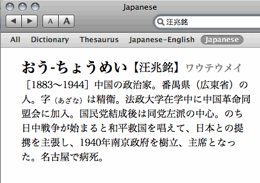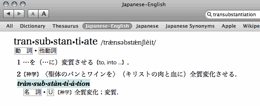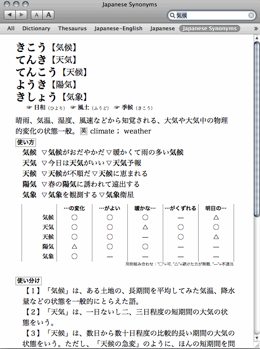Catching up on some newspaper reading, I came across a piece (Korean) by Scott Burgeson, of Korean Bug fame, in the September 15th opinion pages of Chosun Ilbo. In the article he describes a phenomenon familiar to most non-Asians who have lived in places including Japan and Korea: a paralyzing shock exhibited by natives of the country when faced with a non-Asian, especially ones who show some proficiency in the language. When Burgeson lived in Japan he called this phenomenon the “Gaijin Shock Meltdown” (GSM) which, adjusted for Korean, becomes “Oegugin Shock Meltdown” (OSM) or “foreigner shock meltdown.” The term designates a real phenomenon but because it depends on a racial trigger, rather than one of nationality, it becomes harder to lock down a term for it (not Asian-looking shock meltdown?).
He describes one example of OSM in a local convenience store where the attendants have almost never spoken to him in the five years of his nearly daily visits, staring at their register and not even telling him the total cost of his purchases. He talks about how the shock prevents store attendants from even asking him the simple question of whether he wants a bag or not.
I have definitely experienced a whole range of behaviors that result from this kind of “shock meltdown” during my three years or so of living in Japan, and more recently in my summer stays in Korea. I’m sure Burgeson could have expanded his description of this phenomenon if he had wanted to. I think there are perhaps three kinds of responses generated from this kind of “shock meltdown” worth mentioning:
1) Faced with a Caucasian (or, I assume, any other not-Asian-looking individual), the Korean or Japanese person in question will have complete a meltdown, and do their utmost to complete the entire transaction (at the post office, store, restaurant, etc.) without making any eye contact or speaking a single word. In extreme cases they can completely crap-out and request help from the manager or other co-worker before even beginning the transaction or confirming that their customers does not, indeed, speak Korean/Japanese.
2) If the NALI (not Asian looking individual) is in the company of anyone who looks even remotely Asian, they will completely ignore the existence of the NALI and speak/recognize only the Asian looking person. This will continue even if a) the NALI continues to respond to questions and speak passably well in the native language of the Japanese/Korean person in question and/or b) if the Asian looking person in question in fact does not at all know how to speak Japanese/Korean.
3) Faced with a NALI, the Korean or Japanese person in question will panic and try to communicate in a non-grammatical mix of their native language, really bad English, and hand signals. This can happen even if you speak passably well in the native language of the person and have not yet shown any inability to understand their regular Korean/Japanese.
(Note: I do not include in the categories of this phenomenon the kind of response in which the person speaks to the NALI completely in English, even if you start and continue the exchange in their native language and even if your ability in their native language is clearly better than their English. I don’t consider this a “shock meltdown” but just an understandable but, depending on their ability in English, occasionally annoying response).
Why do I not include Chinese and Taiwanese in this? I lived in China twice and have visited Taiwan perhaps half a dozen times. It is true that I have seen this kind of “shock meltdown” in both places. For example, I remember walking through Tiananmen square with a Korean friend of mine who does not speak a word of Chinese many years ago (I didn’t speak any Korean at the time either, but since she spoke excellent Japanese, we communicated entirely in Japanese). It took me considerable effort to convince a rickshaw driving “tour guide” who was accosting us that it really did not do any good to try convincing my Korean friend that we wanted a tour of the traditional hutongs as she did not speak Chinese. The man had the amazing capacity to have an argument with me in Chinese (directing all his responses to my responses to my Korean friend) without seeming to come to terms with the fact that I was speaking in Chinese. This is a good example of (2).
However, that encounter is so memorable because it was so rare. My own experience living in Beijing and visiting Taipei has been that this kind of meltdown is much less common than in Korea and Japan. In China my experiences living there in 1998 and 1999-2000 was that almost everyone assumed I spoke Chinese and if ever our communication failed, they would express frustration at the fact and cope with the situation by trying to explain what they wanted to say in other words. Young students or highly educated Chinese would occasionally try to conduct the entire exchange in English regardless of our relative language abilities but I gradually came to appreciate that an exchange with me in English presented them with a rare opportunity to practice their language abilities. I have less experience with Taiwan, but on my visits most people also seemed to assume I spoke Chinese and even if they didn’t the resulting encounter rarely resulted in a kind of panicked “meltdown.”
So what was the point of Burgeson’s article describing this kind of “shock meltdown”? In his own words:
문제엔 양면이 있다. 첫째, 한국인에겐 한국에 사는 백인은 모두 미국인이고, 유전적으로 영어밖에 못하며, 단기 체류자나 관광객에 불과하다는 고정관념이 박혀 있다. 이런 고루한 편견에서 탈피할 때가 왔다는 내 생각에 한국어를 할 줄 아는 수많은 주한 러시아인・유럽인・캐나다인・호주인・뉴질랜드인・미국인이 동의할 것이다.
둘째, 김영삼 전(前) 대통령이 ‘세계화’를 외치기 시작한 이래 한국 정부와 미디어와 기업은 “세계화하려면 영어를 해야 한다”고 국민들을 들볶았다. 좋은 얘기긴 한데, 솔직히 내 입장에선 한국인들이 영어를 못해서 불편한 게 아니다. 여기는 한국이고 한국의 공용어는 한국어다. 한국인들이 외국인과 마주쳤을 때 지레 ‘외국인 쇼크 증후군’에 사로잡혀 한국말마저 입에서 떨어지지 않게 되는 것이 문제다.
Basically he wants to make two points. 1) He thinks this phenomenon reveals a view that Caucasians who live in Korea are all Americans who are inherently incapable of speaking any other language than English and who are in Korea for only a short stay or as tourists. This is a view he thinks is a “narrow-minded prejudice” 2) Globalization is a goal of Korea, and former president Kim Young-sam said that it can only be achieved when all Koreans can speak English. Burgeson thinks that the problem is not that Koreans can’t speak English. After all the Korean language is the language of communication here in Korea. He wants to emphasize the problem of meltdown that Koreans experience as a problem.
Burgeson goes on to conclude by suggesting that globalization will be achieved when the many foreigners choosing to live in Korea make an effort to learn Korean.
This kind of article uses an effective and well-developed rhetorical approach used in articles by outsiders talking about insiders: Criticize something about the insiders, but make sure you take a shot at your own group as well so that the insiders don’t think you are an ungrateful and bigoted outsider.
I found Burgeson’s discussion of the “meltdown” phenomenon to be fairly accurate and amusing but, to be honest, I think that his criticism of Koreans is unfair. I don’t think these responses by Koreans or Japanese are in any way a kind of “narrow-minded prejudice.” Instead, Burgeson should have thought a bit more about why this kind of reaction happens.
While the “shock meltdown” reaction is common in Korea and Japan, this summer I confirmed something that I discovered during my time living in Japan: this phenomenon is largely urban. I did not notice it until my second time living in Japan because my first trip there (a 3 months homestay just outside Tateyama in Chiba prefecture) was in a relatively rural area. At that time (1995), I spoke barely any Japanese, but most people assumed I did and I remembered how fascinated I was at how everyone seemed to delight in telling me long and complicated stories that I understood less than a quarter of. One buddhist monk, whose family I stayed a weekend with, was eager to share great metaphysical lectures with me over dinner, which, to this day, I regret not being able to understand. My experiences in Yokohama (1997-1998) and in Tokyo (2002-2004) presented me with far more examples of “foreigner shock” and far fewer assumptions about my linguistic ability even though, ironically, my language skills were many times better than they were during my first trip. This summer I made some trips outside of Seoul to go hiking and exploring, and with the exception of a few examples of (2) (when everyone spoke to Sayaka and ignored my existence), found local strangers more likely to be comfortable speaking with me in Korean than people I met in Seoul.
Rather than assuming the “shock” phenomena is an example of narrow-minded prejudice we can ask why this reaction happens? Why is it more common in urban areas with larger number of foreigners, than in rural areas? If most of the foreigners running around Seoul did speak Korean, and all the non-Korean professors working at Korean universities who can’t speak Korean but complain about unfair treatment learnt the language, as Burgeson rightly urges them to, then I find it very hard to believe that this phenomenon would survive. Many Koreans and Japanese, especially in places like Seoul and Tokyo, react in this way precisely because the vast majority of the “big-nosed” Caucasians that Koreans/Japanese come across do speak little or no Korean/Japanese and are overwhelmingly likely to be able to speak at least some English. While it is true that it is frustrating for those of us who have invested huge amounts of time into studying Asian languages to be frequently confronted with paralyzed store clerks and post office workers who have pre-judged us to be English-only speaking Americans, I would say their assumptions and their worry that communication with the person in front of them will be extremely difficult, are based on pretty sound statistics.




